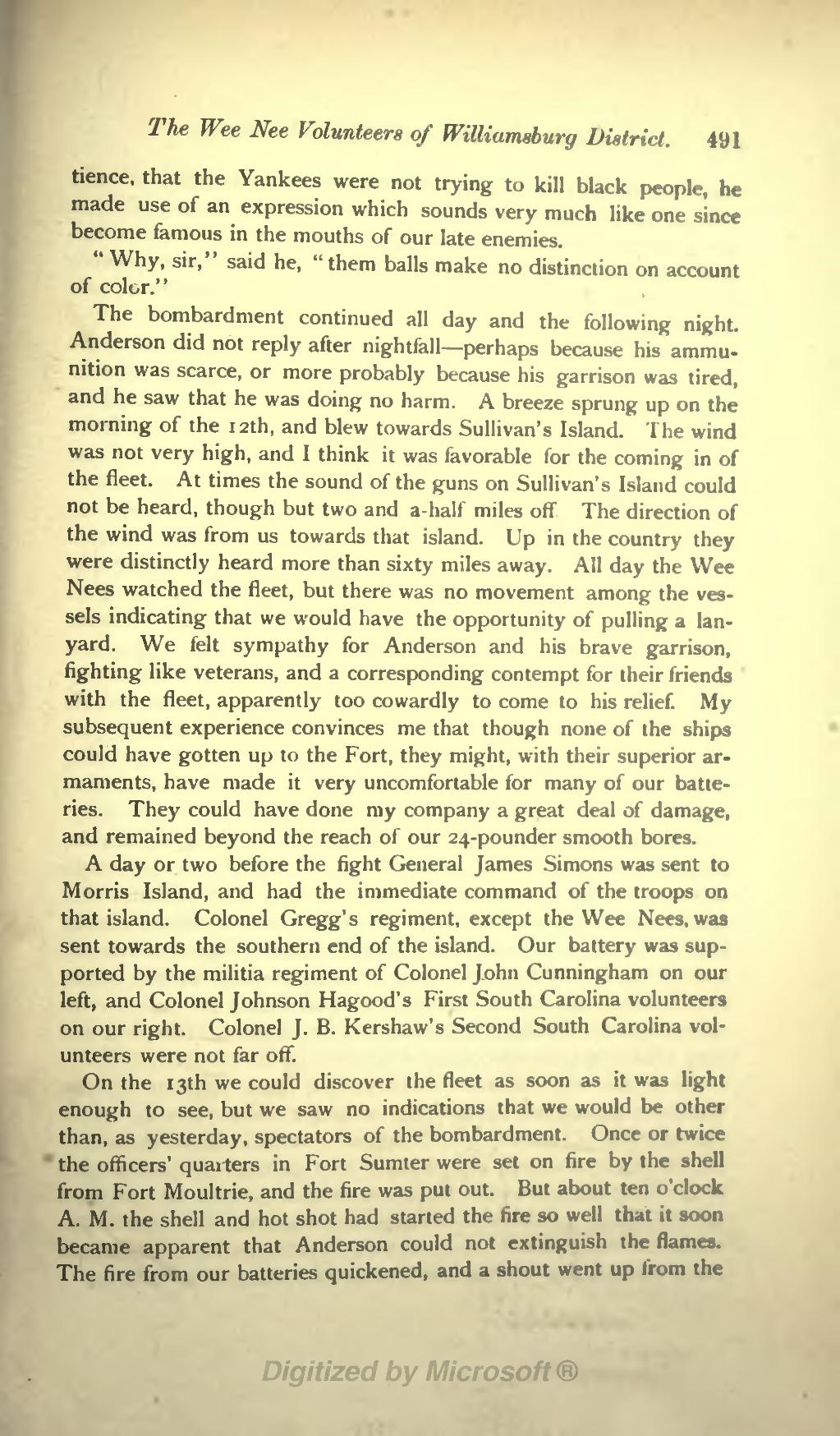The Wee Nee Volunteers of Williamsburg District. 491
tience, that the Yankees were not trying to kill black people, he made use of an expression which sounds very much like one since become famous in the mouths of our late enemies.
" Why, sir," said he, "them balls make no distinction on account of color."
The bombardment continued all day and the following night. Anderson did not reply after nightfall perhaps because his ammu- nition was scarce, or more probably because his garrison was tired, and he saw that he was doing no harm. A breeze sprung up on the morning of the I2th, and blew towards Sullivan's Island. The wind was not very high, and I think it was favorable for the coming in of the fleet. At times the sound of the guns on Sullivan's Island could not be heard, though but two and a-half miles off The direction of the wind was from us towards that island. Up in the country they were distinctly heard more than sixty miles away. All day the Wee Nees watched the fleet, but there was no movement among the ves- sels indicating that we would have the opportunity of pulling a lan- yard. We felt sympathy for Anderson and his brave garrison, fighting like veterans, and a corresponding contempt for their friends with the fleet, apparently too cowardly to come to his relief. My subsequent experience convinces me that though none of the ships could have gotten up to the Fort, they might, with their superior ar- maments, have made it very uncomfortable for many of our batte- ries. They could have done my company a great deal of damage, and remained beyond the reach of our 24-pounder smooth bores.
A day or two before the fight General James Simons was sent to Morris Island, and had the immediate command of the troops on that island. Colonel Gregg's regiment, except the Wee Nees, was sent towards the southern end of the island. Our battery was sup- ported by the militia regiment of Colonel John Cunningham on our left, and Colonel Johnson Hagood's First South Carolina volunteers on our right. Colonel J. B. Kershaw's Second South Carolina vol- unteers were not far off.
On the 1 3th we could discover the fleet as soon as it was light enough to see, but we saw no indications that we would be other than, as yesterday, spectators of the bombardment. Once or twice the officers' quarters in Fort Sumter were set on fire by the shell from Fort Moultrie, and the fire was put out. But about ten o'clock A. M. the shell and hot shot had started the fire so well that it soon became apparent that Anderson could not extinguish the flames. The fire from our batteries quickened, and a shout went up from the
